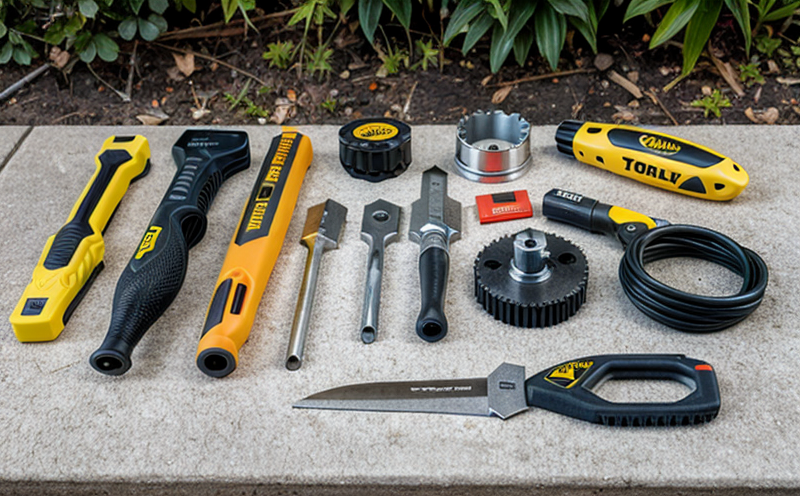Corrosion Resistance Testing of Metal Tools
The integrity and durability of metal tools are crucial to their performance in consumer products and product safety testing. Corrosion resistance is a key factor that impacts the longevity, reliability, and overall quality of these tools. In this service, our laboratory specializes in evaluating the corrosion resistance properties of various metals used in DIY tools and hardware products.
Our comprehensive testing protocols include exposure to simulated environments that mimic real-world conditions under which the tools are expected to operate. This ensures that any potential issues with corrosion can be identified early on during development or production phases, allowing for necessary adjustments before final product launch.
The metal alloys commonly used in DIY tools and hardware products often undergo rigorous testing to ensure they meet industry standards such as ISO 9227 (Sulfuric Acid Pitting Resistance Evaluation Test - SAPR). However, our laboratory goes beyond standard compliance by providing tailored solutions that address specific client needs. For instance, we can simulate different atmospheric conditions like salt spray or humidity levels according to ASTM G101-18.
For accurate results, specimens are carefully prepared following specified guidelines set forth in relevant international standards such as EN 16932:2017 for metal coatings. Once prepared, samples are subjected to accelerated corrosion tests designed to accelerate natural aging processes. This allows us to provide reliable data within shorter timeframes compared to actual field usage.
Our laboratory uses advanced equipment capable of measuring both macroscopic and microscopic changes in the surface structure due to corrosion. These measurements help determine not only whether a given material resists corrosion but also how effectively it does so over prolonged periods.
In addition to physical testing methods, our experts employ sophisticated analytical techniques including X-ray fluorescence (XRF), scanning electron microscopy with energy-dispersive spectroscopy (SEM-EDS), and optical profilometry. These tools allow for detailed characterization of the corrosion process at atomic levels, providing valuable insights into material composition and structure.
Upon completion of testing, we generate detailed reports summarizing all aspects of the evaluation – from initial sample preparation through final analytical findings. Our goal is to provide clear, actionable recommendations based on our analysis so clients can make informed decisions regarding their product development processes or ongoing quality assurance efforts.
Why It Matters
The importance of ensuring robust corrosion resistance cannot be overstated when it comes to DIY tools and hardware products. Consumer safety is paramount, especially considering the frequent use of these items in outdoor environments where exposure to moisture, humidity, salt air, etc., could otherwise lead to premature failure.
- Increased customer satisfaction
- Enhanced brand reputation through reliability
- Reduced warranty claims and returns
- Potential cost savings due to extended product life cycles
Achieving strong corrosion resistance is particularly critical in sectors where tools are subject to extreme environmental conditions. By investing in thorough testing, manufacturers can mitigate risks associated with failures caused by corrosion, ultimately leading to more dependable products.
Industry Applications
- DIY tool manufacturing companies seeking to ensure their products meet stringent quality benchmarks
- Construction firms looking to source reliable metal components for long-term projects
- Home improvement retailers aiming to stock durable, high-quality tools
- Manufacturers of hardware accessories requiring specific corrosion-resistant properties
Our services cater specifically to industries where the durability and performance of metal tools directly influence customer experience. By partnering with us early in the development process, clients can gain valuable insights that contribute significantly towards meeting regulatory requirements while enhancing their competitive edge.
Competitive Advantage and Market Impact
- Achieving industry-leading standards through rigorous testing procedures
- Providing rapid turnaround times with accurate, reliable data
- Offering customized solutions tailored to individual client needs
- Promoting innovation by identifying emerging trends in corrosion resistance research
By choosing our laboratory for corrosion resistance testing of metal tools, clients benefit from enhanced product performance and market positioning. Our expertise enables them to stay ahead of competitors who may not prioritize such critical aspects of their offerings.





